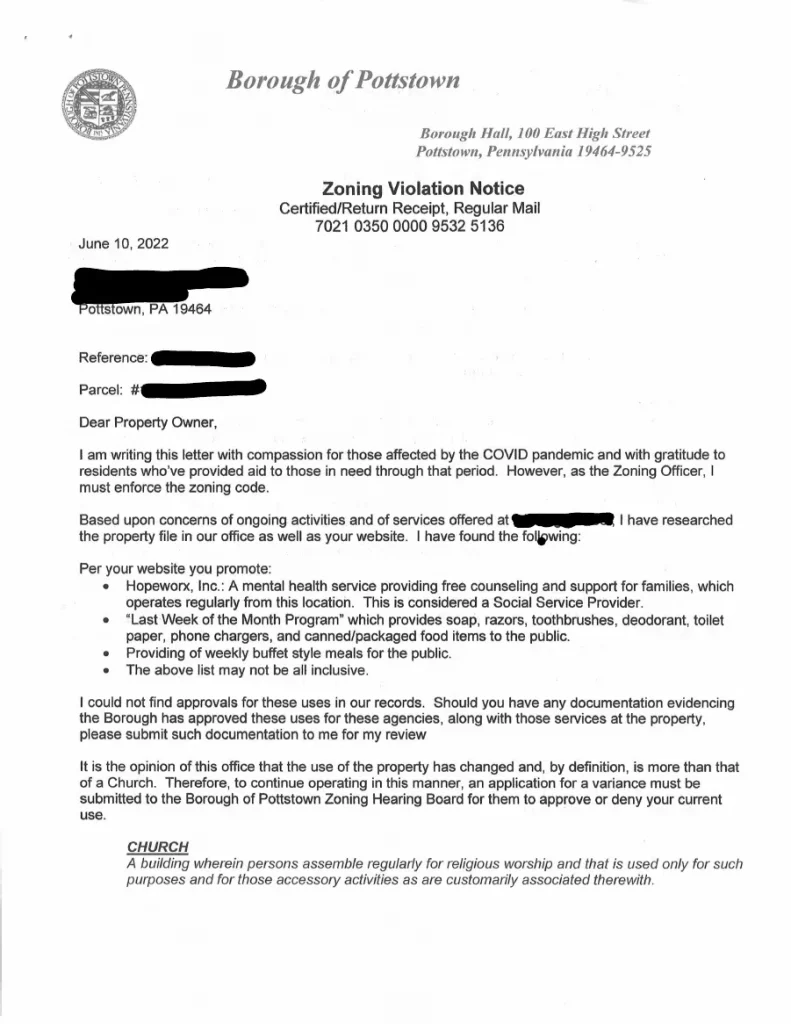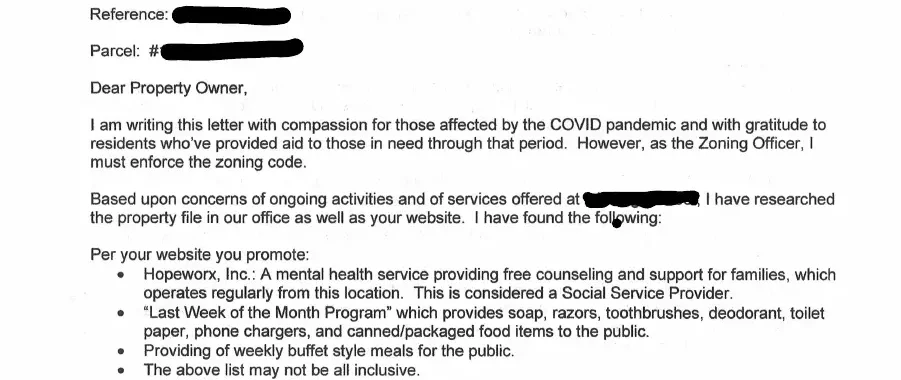Pennsylvania Town Issues Citation Against Local Churches Providing Food, Counseling to Community

Public officials in the Philadelphia suburb of Pottstown, Pennsylvania, recently issued a citation against two churches operating ministries in their community.
NPR affiliate WHYY reports that the churches were cited for violating the city’s zoning code by offering free meals and providing mental health services.
The Pottstown Zoning Officer reportedly cited an Episcopal church and a United Methodist church for the violations.
“Violations” listed on the citation include:
- Providing free counseling and support for families.
- Providing soap, razors, toothbrushes, deodorant, toilet paper, phone chargers, and canned goods to the public.
- Providing weekly buffet style meals for the public.
The citation draws from the city zoning code that defines a church as “A building wherein persons assemble regularly for religious worship and that is used only for such purposes and for those accessory activities as are customarily associated therewith.”
The citation gave the ministries 30 days to apply for a zoning permit with the city or cease and desist these services.
If the churches failed to do so, they could be fined up to $500. The Episcopal News Service reports that the churches do not intend to stop the programs or apply for additional permits.
Churches should not be threatened with fines simply for giving food and basic necessities to the needy.
Stories like this one underscore why it is so important for states to safeguard the free exercise of religion.
In 2016 the Arkansas Department of Health told a Carroll County food ministry that it could not serve soup to the homeless unless the soup was “prepared in an institutional kitchen and served in the same building.”
Fortunately, a religious freedom restoration law the Arkansas Legislature passed in 2015 helped protect that ministry.
Last year the Arkansas Legislature voted to place the Arkansas Religious Freedom Amendment on the 2022 ballot. If passed, it would enshrine many of the same religious liberty protections from the 2015 law into the Arkansas Constitution.
You Can Learn More About the Arkansas Religious Freedom Amendment Here.




